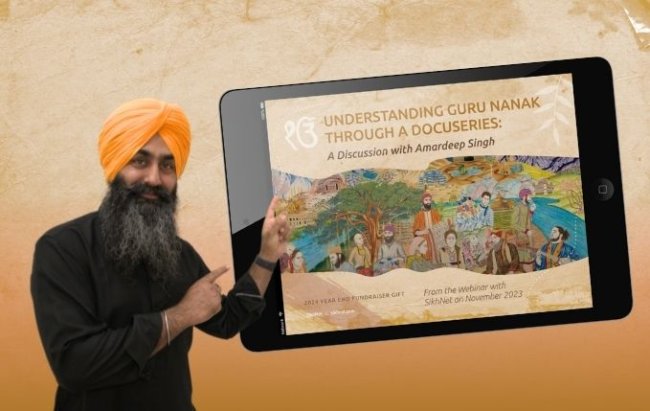The spread of coronavirus compelled Sikhs to re-think the way they could serve humanity
Amid the long months of pandemic-induced lockdowns, KP Singh with the Sikh gurudwara in Denver spent most of his time at home with his headset on. He got multiple calls from people who were searching for things like groceries, and other goods but could not get their hands on them due to restricted movement.
Sharing his experience, KP Singh said, “ Some people needed medical equipment. Some lady actually called us that she had to go to a food bank so we had to arrange an Uber drive for her.”
Revered tradition of Sewa in Sikhism
The gurudwaras, which are the place of worship for Sikhs, have a long tradition of offering sewa, or selfless service to those in need. The Denver gurudwara has a community kitchen, where normally, volunteers come together to cook meals and serve them to everyone who visits. This practice is called langar or free meals, which is open to everyone irrespective of their caste, creed, religion, class, or gender. It is a way in which Sikhs give back to the less fortunate. However, during the pandemic, they could not do this because of social-distancing norms.
The spread of coronavirus caused widespread closures, compelling all religions, including Sikhs to re-think the way they followed their traditions and religious practices. The president of the non-profit Colorado Sikhs, Dilpreet Jammu, shared the experience of the community and said, “Now the question becomes, how do you take care of the community in a world where you can’t go out to meet with the community because of pandemic response?”
A new approach to selfless service
In the age of social distancing, Colorado Sikhs reimagined the idea of langar. They started providing nutritious food to people more than just once a week. This was driven by the increasing demand for cooked food as more and more people were restricted in their homes and lacked the money or resources to have meals.
KP Singh took the reins of this reformed initiative from his home. People contacted him to request a variety of items. During that time, he even coordinated Amazon and King Soopers’ orders and also helped arrange transportation for people. He said that people called him and asked favours for even the simplest of things, such as toilet paper.
Singh used to get around five requests for help from people each day. On some days, people called to seek emotional support and some called just to hear another voice. It was an emotional time for everyone, and he lent an ear to those who craved the warmth of humanity. Recounting one of the experiences, he shared that one time a lady called and said, ‘I am not asking for anything financially so don't worry, but I do want to talk about this whole thing that you are doing.’ And she went on and on and on and on. He said that some of the requests were challenging but he did not mind. He liked assisting people. As his words go, sharing is one of the key principles of Sikhism.
Dilpreet Jammu is of the same mindset. He said, “Another thing that helps our community is a phrase called a chardi kala. And that translates to always rising, always uplifting. So not only uplifting your spirits but uplifting the spirits of others around you.”
When the COVID-19 pandemic hit the world the hardest, the Sikh community came together to rescue people from hunger, loneliness, and sickness. Colorado Sikhs continued to uplift their community in Kansas also where they hoped to serve people with shared meals and langar. In some parts of the world, Sikhs even delivered food to those in need. The spirit of Sewa continues to dwell in the hearts of Sikhs across the globe and is eventually uplifting society as a whole.

